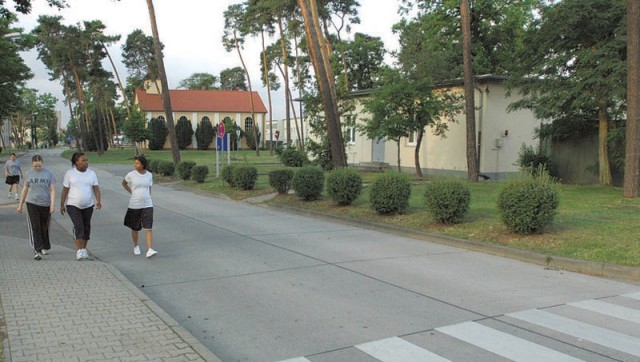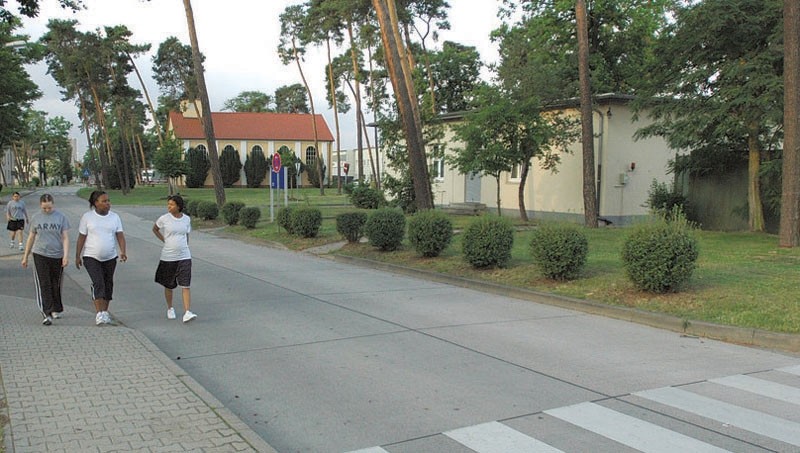HEIDELBERG, Germany - After the birth of her third child, Sgt. Delores Gordon, said it took her three attempts to pass her Army Physical Fitness Test, with 30 days between each test.
Now, on her fourth pregnancy, Gordon, a schools clerk with the 44th Signal Battalion, is enrolled in the Army's Pregnancy/Postpartum Physical Training Program, a relatively new program designed to keep expecting mothers active and toned, and to get postpartum mothers back up to speed so to speak.
Spc. Traci Petaway, 95th Military Police Battalion, said she was a good runner before becoming pregnant. However, when in the early stages of her pregnancy she didn't participate in unit PT, as the Mannheim PPPT program had not started, and she and her unit were unfamiliar with pregnancy fitness.
Now just three months after giving birth, she is working on her run time with the postpartum group in Mannheim.
"They smoke us just like back at my unit," Petaway said after a morning run on Sullivan Barracks in Mannheim.
The mandatory program increases retention rates and Soldier readiness, according to Debra Weeks, health promotion coordinator for U.S. Army Garrison Heidelberg, who is starting the program here.
.
"It gives the Soldiers a safe place to exercise, and is healthier for the mother and the baby," Weeks said.
The PPPT is a commander's program, and according to a U.S. Army Center for Health Promotion and Preventative Medicine fact sheet, should be consolidated into one program per installation.
Gordon, who had her first two children while enrolled in a similar program at Fort Hood, Texas, said that the transition back into unit PT was much easier because it kept her in shape.
"I didn't know how to modify the pushup," Gordon said. "There are also ways to work your abs (while pregnant)."
The exercise portion of the program consists of modified exercises with limited repetitions, said Sgt. Isa Villalobos, 95th MP Battalion, who has been certified in pregnancy fitness and leads the PPPT program in Mannheim.
Villalobos said they also use elastic bands for resistance training, cardio exercises to maintain stamina, and Kegel exercises to tone the pelvic muscles to help the mothers during childbirth.
"It's still hard," said Sgt. 1st Class Lashon Gros, Headquarter and Headquarters Company, 5th Signal Command, who is now in the postpartum group. "You have 20 pounds of weight in front of you, and just getting up is challenging."
The program isn't just about PT and keeping Soldiers in shape; it's about helping the expectant mothers prepare for the new child.
"There is an educational piece led by a medical provider each week," Weeks said. The class topics range from PT plans, to basic child care, local day care options and postpartum birth control options.
"I see it as refresher training," Gordon said. "They teach you little health care things you didn't know," she said referring to the ever-changing research on what is best for children.
Something else, not listed in the Army regulations, which the Mannheim group discovered is that the program serves an unintended function.
"It's not just PT, it's a support group," said Sgt. Miki Williams, 76th Signal Battalion, who is expecting her second child.
One Soldier during Monday's session asked the group during post-PT stretching if anyone else was loosing more hair than normal. Another Soldier asked the 'veteran' mothers if their husbands would ever look at them the same again. "Oh yea, he will," was the response from another Soldier down the line.


Social Sharing